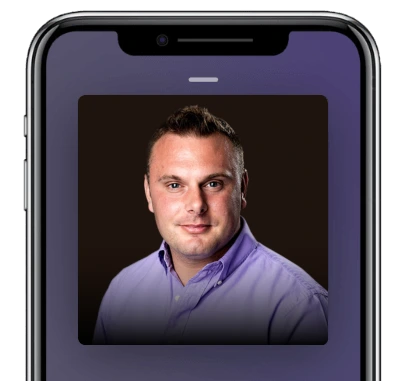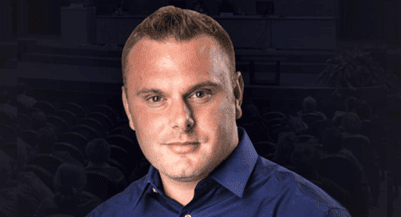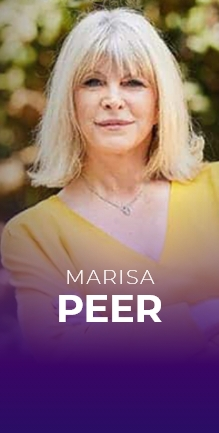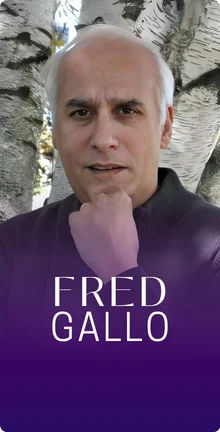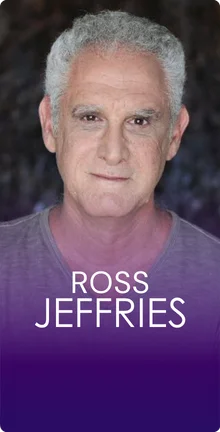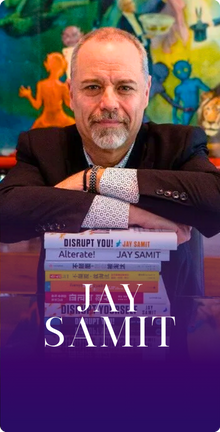Elliot, great to have you on the show.
Thank you so much for having me.
How did you end up getting into this high-performance industry?
A bit of a strange story, really. I’ve been working in investments and I had a terrible fear of flying. Someone had recommended a hypnotherapist to me. I went to see a hypnotherapist, and she managed to resolve my issues in an hour, which absolutely blew my mind. Because of that, I decided I wanted to train in it, thinking I’d be helping friends and family.
I went on a year’s course to get trained as a hypnotherapist and started seeing friends and family helping with their issues. Everything started going really well. They would recommend their friends, and it would grow and grow. I started working with some golfers locally and they were seeing big improvements in this course. Because of that, I had someone on the poker industry had said, “Hey, had you ever thought of working with poker players? They get very stressed when they’re playing for large sums of money and this might be really useful for them.” I jumped into poker and started doing some free sessions with the players. They started to see some good results.
My business just built and built around that to the extent that I had to stop everything else I was doing because the hypnotherapy and performance coaching business was becoming so successful. From there, it then transitioned into professional athletes, UFC fighters, Wall Street traders, CEOs of companies, anyone who is doing something that puts them under high pressure and they can feel some sense of self-sabotage getting in their way. My job is removing that self-sabotage and allowing them to perform their best.
That’s cool. You specialize in poker players, I saw that when I was doing my research on you, and that really intrigued me. What is it about high stakes poker that makes this so valuable specifically to that audience?
Eliminating self-sabotage allows a person to become their very best. It is a plug waiting to be removed so that all the positive energy flows through. Share on XFor that audience, it’s because it’s high stakes. With poker, they know how they’re supposed to play a hand, but oftentimes, making the decision to play the hand you know you should play in this way. It’s very different if there’s $10 on the line versus a million to lose on the line. The advantage you can get to be a player who can play the hand as if it’s $10 when there’s $1 million on the line, is an enormous advantage to have over the field.
That’s also where it comes in things like professional fighting. They have an awful lot on the line so their anxieties are going to be much higher, it’s going to impact that performance more. The more high pressure the environment, the more benefit this work will have in terms of improving performance in giving an edge over the field.
That makes total sense. Imagine that I’m a high stakes poker player. What would be your first tier of advice for me? Assuming I haven’t done any kind of mindset work or anything.
The first thing for professional poker players to really understand is that it’s a long-term game and it’s not won or lost in a single hand or in a single session. It really comes down to them viewing themselves as a casino winning over time rather than a gambler at a casino hoping to hit the jackpot. It’s quite a significant change in mindset in the way they play.
The casino never adjusts the way they play blackjack, the gamblers frequently will adjust to how they play blackjack. It’s the same for professional poker. They have to see that they grinding out an edge over time, they’ll have winning sessions and losing sessions, but it’s about having more winning sessions.
If you can get into that mindset, you can play correctly throughout the year. If you struggle with that mindset, it can be quite a difficult situation and you’d end up doing crazy things trying to win an individual hand or session and that ends up damaging you over time.
What would be some of the practices that, let’s say, I as a hypothetical high stakes poker player would want to do so that I can get into that mindset of being the casino rather than the player who’s all over the place?
Obviously, I do my one-on-one sessions with them. Which usually go deeper understanding of their childhood memories-why these issues may be coming up, and why it might be hard to accept that sometimes you have to lose. I then have audio programs that they listen to.
Another useful thing for them to do, especially if they’re a long-term professional, is being aware of that overall growth so that’s the overall success that they’ve had over the years and looking at the context of individual sessions versus their lifetime performance rather than looking at a weekly performance or daily performance or monthly performance.
When they can see that, they might lose $10,000 today, but $10,000 out of $5 million isn’t really a big deal. However, $10,000 today might feel like a very big deal. It’s all about turning into the long-term rather than just being the short-term performance of that day.

What are these audio programs look like? Sound like? What are they about? When somebody listens to one of them prior to playing? My wife and I just had a baby, so we took something called Hypnobabies and it was all about using hypnosis to induce the state hypnoanesthesia, so it wouldn’t require all the powerful drugs that you could go through the labor process with a lot of ease and less discomfort. It was actually very powerful. The mind is a powerful thing.
I’m curious. Is it something like that where it’s an audio program where it gets you into a hypnotic state and you visualize and you get all these keywords or triggers that induce a trance and get you into a deeper trance than you had been before? Or is it something that’s more “Rah! Rah! You can do this.”? What is it?
It’s very close to what you just described. The app that you mentioned, I’m the voice of Primed Mind, we have about 250 audios. Some of them are poker-specific but most of them are preparing for your day, getting good night’s sleep, dealing with high-pressure meetings in business, and negotiation. The app comes with everything, preparation and all types of different subjects.
The best way of describing what this type of hypnosis (suggestions hypnosis) is like meditation with a purpose. If you’re someone who’s used one of the apps like Headspace or Calm, and you’ll notice a lot of it is around focusing on your breath and traditional meditation techniques with hypnotherapy. It’s meditation with a purpose. It’s prepping your mind for a specific activity. Preparing you to start your day is the most optimistic day it can be. Preparing your mind to play the best poker session or perform the best in your tennis match or whatever your aim for that day is. That’s really what good way of describing it to someone who may have experienced meditation but hasn’t experienced the difference between hypnotherapy and meditation.
I’m curious to hear more about your hypnotherapy session that’s within an hour cured your fear of flying. I have a daughter who’s a grown woman, she’s 23, and still, have this fear of flying. She tried a tapping session which didn’t work for her. I really thought it would because the person I referred her to was Fred Gallo. He was a past guest on this podcast and he is phenomenal. He helped me with my fear of heights and fear of water in just a single 40-minute session and that stuck for years. It’s pretty amazing.
Being equipped with the right mindset gives you a strong advantage in dealing with high-pressure environments. Share on XI thought this is going to work for my daughter and it didn’t. He said, “Probably she needs another session or two,” but she wasn’t open to it because she had expectations of working on the first try. I didn’t set those expectations for her. I just said, “Be open to this.” Anyway, what was your experience like and what was the magic that made the difference?
The magic that made the difference for me, the beginning as you said is like reaching this trance state, so a very relaxed state. Just like meditation. And then the type of hypnotherapy that she did is the same as me, it’s regression hypnotherapy. It’s looking for the root cause of the fear and where that fear came from.
You get to this very deep relaxed state. It’s quite hard to describe, but if you’ve done deep meditation, very similar to that state. She started to ask me how I felt when I was on an airplane or when thinking about getting into an airplane. I would say, “I feel a pressure in my chest and my stomach. I feel hot and uncomfortable.” Those sorts of emotions and physical sensations. I consider bringing those sensations up within the session. Then she said, “I want you to connect back to another time you felt that way.” I connected back and the next memory that came up was the turbulence of an airplane. Not particularly surprising with that issue.
She said, “Okay. The next memory, the next memory.” A few sets of turbulence memories came up, and then a memory of being three or four years old at my grandfather’s house, being shown a picture of a small private airplane, and being told, “Oh, that was involved with your grandfather’s business. It crashed and killed his business partners.” This is at the age of 3 or 4. She had me look at it through my adult eyes, talk to the child about why that doesn’t mean that planes are dangerous and release the emotion that I’d held around this.
I went through all of that. It felt quite emotional, and I felt this relief. As I finish the session, I came out a bit and I did feel different about flying, which is interesting to feel different straight away. It felt like something seems different now. What’s most interesting to me was that was a memory that I couldn’t remember going into the session, and I wasn’t sure how real it was.
I spoke to my mom afterward and she said, “Yeah, of course, that happened. You know that happened. It hit that jet, etc.” That was a memory that I wasn’t aware of, that could be collaborated by someone else could say, “No, that was true,” and then I felt completely different about flying. From that point forward, flying is not my favorite thing to do in the entire world but I’m happy flying around the world and can quite enjoy the experience most of the time. Whereas before, I would literally turn down opportunities for long-haul flights because I just didn’t want to go in the plane and it would ruin vacations.
For me, what was most interesting is this idea that your fears are learned at some point from something and they can be unlearned and unprogrammed. That’s why I was interested, as I say, initially not doing it necessarily professionally, but I just found it such an interesting tool to have to help the people around me. It just seems to make sense to learn it. I’m certainly glad I went down this through.
What a powerful story. I am guessing that you did not connect the 3- or 4-year-old you, the experience of seeing that photo, and being told that the business partner died. You didn’t try and connect that.

I didn’t even know it happened. I’ll just say it was a memory that I’ve completely forgotten. That’s what made it so powerful to me was that I could then be told by a parent, “No, that really did happen.” That was the big shift for me. It’s like, “Wow, this is something quite incredible that’s just happened and I feel different about something that was really holding me back in terms of seeing the world.”
You took a year-long course. Could I ask what was that course?
It was one in the UK. RBCCH, Royal Berkshire College of Clinical Hypnosis. It was 11 years ago.
In the UK, there is a very famous hypnotherapist who created her own branch of hypnotherapy called Rapid Transformational Therapy (RTT). It’s Marisa Peer. Have you heard of her?
I’ve heard of her, but I don’t know her personally.

She’s been on the show. And wow, that was an amazing interview. Actually, one of the most popular episodes of the last four years. She’s fantastic. I’m curious if there are any hypnotherapists or any books or courses or anything (other than your own, of course) that you look up to or you think highly of.
For example, Ross Jeffries who’s a very famous NLP person but also more famous for being a pick-up artist. He was written up in the book The Game by Neil Strauss, and he also was a guest on the show. Fascinating episode too. His favorite book about NLP and hypnosis, hypnotherapy is a book called Provocative Hypnosis. Have you heard of this book?
Most I wouldn’t have heard of.
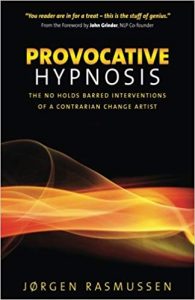
Maybe check that one out. I’ve read most of it and it is amazing. Are there any favorite books, courses, hypnotherapists or whatever that you recommend to our listeners?
There’s quite a few. Hypnotherapy by Dave Elman. It’s a very old book. I think it’s 1960s. That’s my favorite book on the subject. I actually bought another copy of it today for someone as a gift. That gives you an idea. That would be a very good starting point for somebody interested. It’s a very boring looking book, pretty basic green cover, but very strong information in there. One of the classics of the industry.
In terms of hypnotherapists and training courses, there’s a lady called Grace Smith. She runs a training course in Florida. It’s partially online and partially in person. Her stuff is very good. She has a site called Grace Space. She’s really helping push the industry forward. There’s also Freddy and Anthony Jacquin in the UK who are doing some very interesting things online as well. They have some cool techniques regarding pain control that are definitely worth checking out. I trained with a guy in the UK called Kevin Sterling. Certainly, he served me really well over the years.

They are really the ones that stand out, but certainly, if you’re interested in getting an idea of how this works and what I’m trying to do in the sessions, the book Hypnotherapy by Dave Elman is a great starting point. Read 13 more books and you get a better idea that is a great starting point.
Awesome. Are there any books on meditation or on mindfulness or just more spirituality in general that you would recommend? For example, I know that Steve Jobs, the one book that he would give to all of his visitors was Autobiography of a Yogi by Yogananda. I was just curious if that’s a book that you are familiar with or if there is another book or a course or something that you think very highly of and the more general spiritual space?

General spiritual space, recently I’ve been gifting a book called The Four Sacred Secrets. I really enjoyed that and I’ve purchased quite a number of copies of that book for people. And then, The Power of Now and A New Earth by Eckhart Tolle. I think they are classics in the industry. I really enjoy seeing people view life in a different way having read those books. They are the basics that I send out as gifts typically, those books in the most spiritual side.
Cool. What’s the biggest lesson you’ve picked up from Eckhart Tolle?
I really like the idea that you’re leveling everyone out by working on your soul. Obviously, all of my work is around helping people reach that next stage, let go of the ego, and become their true selves. It’s a different philosophy from mine but I feel it does fit very well in terms of that idea that we’re here to reach another level. We were trying to move in that direction and any work that we can do on ourselves isn’t just benefitting us, but it’s benefiting everyone around us energetically. The big takeaway for me is feeling the obvious. It’s beneficial in a lot of different ways rather than just the typical clearing in mind meditation.
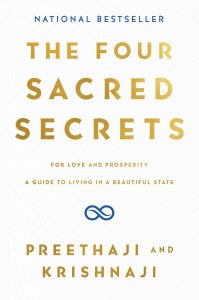
Another one I enjoyed recently (which is worth mentioning) because it does have a bit of a take from hypnotherapy from it, is an older book again called Many Lives, Many Masters. That one’s actually about past life regression hypnotherapy which isn’t something I do at all, but it’s a very interesting book from the spiritual perspective. It’s definitely worth checking out if you’re into the more spiritual side and want to make some kind of hypnotherapy connection to.
Very nice. These are all great suggestions. I’m excited to check them out. When you were talking about the lesson you learned from Eckhart Tolle I was thinking of a friend, a spiritual teacher, and just a phenomenal person. He’s like a wizard. His name is Donny Epstein. I’m just curious, have you ever heard of him?
He’s not one I’ve heard of, no.
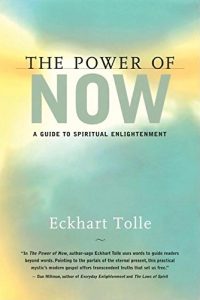
Okay. He’s good friends with Tony Robbins. Tony credits him for a lot of his success and just his awakenings that he has had. By the way, he was a guest on this show as well. So listeners, definitely check out the Donny Epstein episode.
The idea that really stuck with me that is similar to what you are describing with Eckhart is that rather than try and change others, you just change yourself. That changes the field around you, the energetic field and that changes everybody who’s in touch with that field. You do end up changing everybody by just giving up on changing others and just focus on changing yourself. I like that idea as well.
I’m curious, how did you go from poker players to UFC fighters because it’s pretty different.
But surprisingly close. Actually, I was living in Las Vegas at the time, there are a lot of UFC gyms. I went and gave some talks at some gyms. Because of professional poker, a lot of time the guys are playing with high professionals from other sports, other industries as well. There may be three or four professional poker players at the table. But also the high stakes table there may be CEOs of companies, Wall Street traders, and professional athletes.

As the poker players were seeing success, they were recommending me to people in different industries. This is over 7-10 new period. It effectively happened through osmosis. They were recommending me, I would then take on a few clients in a different sport, and different industry. They would end up then recommending me to other people and other sports and other industries. It now transitioned probably 70% other things and 30% professional poker in terms of the hours of my week, spread out over different clients. That would be different professional sports.
Now an awful lot of entrepreneurs and CEOs of companies are working with me to reach that next level and overcome these self-sabotage issues. They have to deal with the emotions and their staff in a more efficient manner. That’s probably I would think in another two or three years, with the way I can see my business starting to move and the client base that I’m getting, I think it will probably be the vast majority will be business people at some point.
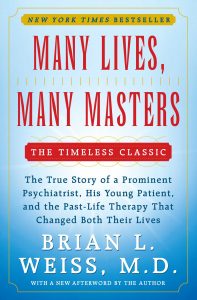
What would be an example of a UFC fighter or a poker player or both were they had some sticking points, some inner demon, or fear, or anxiety that was interfering with their performance and you help them make a significant breakthrough?
I’ll give an example for both. The easiest one I can give in poker, if anyone does professional poker as a game, is sometimes when playing live, a lot of players have emotional issues. There’s someone keeps three betting against them, sort of racing against them. They start to feel picked on when it happens. So they open the person three bets, and they feel picked on, and they take it personally. They either get very angry or very anxious and they start to adjust their play feeling like they’re being attacked.
Now, when I go through the hypnotherapy sessions with those clients, virtually every client I’ve gone through that session with, they’ve ended up talking about memories of being bullied in school or being bullied by a parent. We resolve the bullying issues, we reframe it, we let go of the emotions around those bullying issues, and then when they go back to the table. When that same situation happens again, it doesn’t trigger and they can see it something to adjust to rather than a personal attack. That’s definitely the easiest one to understand from a poker’s perspective as to how early programming could impact the way you respond at the table.
In terms of fighting, one of the big things that UFC fighters notice, you definitely see it if you are around the sport a lot, is the performance in the gym versus the performance in the cage or in the ring. They’re able to perform at a much higher level when it’s behind closed doors with sparring partners versus the performance that they actually have in the night.
Oftentimes, there are self-sabotage issues there. I’d had guys whose issue was that they knew if they won, they would be moving up in class and fighting people that they weren’t sure if they could beat. It might be dangerous. They would actually sabotage and lose fights at a lower level, so they wouldn’t get the opportunity to move up in class to a level to where they weren’t as confident. That was definitely a big part.
So much of this comes from self-worth issues, how they believed in themselves growing up, the programs, whether they felt loved as a child. Everything’s the same. It’s quite incredible. I’ve seen from sport to sport, olympians, international rugby players, soccer players, so many of the stories are identical. Nearly everything goes back to childhood, their relationship with their parents, how he’s been treated at school, how he felt about, how he behaved at school. A lot of guys’ first rejections on teenage years are haunting for their entire lives in terms of their self-worth.
All of these things, you can overcome. That’s what I find most interesting is sometimes, my single session for flying was an outlier. Usually, it takes a few sessions. But over a few sessions of hypnotherapy, in most cases, the issues can just be let go for everyday things like road rage disappear and anxiety issues disappear.
The way to describe life is things that used to be difficult becoming easier for you. You’ll notice that you’ve done something that used to trigger you and you’re like, “Oh, wow. That was easy.” That’s what I’m looking for for my clients is they notice a list of things that used to be hard and now seem natural and easy to do because they wish should have been.
That’s amazing and that you’ve been able to achieve these kinds of results for your clients as an impressive testimony to your skills. I’m curious if folks can tackle this self-worth, anxiety, road rage, phobia types of issues without getting one-on-one therapy sessions or coaching, if they could just use an app or they could listen to some audio programs or watch YouTube videos or something like that? Or is it really each person is unique and trying to tease out what that childhood memory or trauma was, is something that needs to be done one-on-one?
You can usually make a dent in at yourself. The process that I tell people to do, if you’re listening to this and things are coming up, think about the things in your life where you know you should be acting differently but you struggle to. Whether it’s an anxiety issue or you’re trying to lose weight and you can’t get to the gym or issues with money and the way you feel about saving money or you don’t deserve money.
Think about the physical sensation that creates in you. Really get an idea of what’s it like when you try and force yourself to go to the gym and you come. Do you feel sick? Do you feel like there’s an invisible force field, whatever it might be. Write that down, and then just sit and meditate and start to think of the other memories that come up where you felt that way back through your life.
Typically, we’re looking for something between 5 and 10 years old. It is typically where to find our memory. As you come up with those memories, “I felt terrible because the teacher pulled me up in front of the class and called me stupid in front of everybody.” Start to reframe it for what it really was. The stressed out teacher who’s probably in the age you are now overreacted to a child. That doesn’t mean you are stupid forever. It just means she was having a bad day and she didn’t perform her job correctly. As you start to reframe these things, it can remove some of the pressure.
The only issue I have found is that we can’t see our own blind spots and quite often we hide the most important memories from ourselves. That’s where you need a therapist to do the last chance. For my side, I wasn’t aware that it was a memory of the plane. Just seeing the picture of the red jet and being told that went down. It would’ve been virtually impossible for me to find that myself.
You need someone driving and forcing you to the uncomfortable thing so you can make a change. You can’t make a big dent in this on your own. Just be aware that working with a professional who’s used to helping people uncover and work through this is dramatically more effective. We hide our own blind spots and weaknesses, that’s why they’re blind spots and weaknesses. I would usually recommend that if you’re doing anything in high performance and there’s a lot on the line, then it’s an investment that’s almost always worth making for people.
Right. Being able to reframe things is helpful, but if you don’t get it at the root cause, which for you was that picture and that story of the private jet, you’re not going to fully resolve it. Just doing regular talk therapy might be helpful but there’s something about going into deep hypnosis and unlocking memories that are not readily accessible to you. That’s where the magic happens, right?
Everyone who aspires to live a significant life requires a mentor. You need someone driving you, forcing you to do the uncomfortable so you become the change this world needs. Share on XExactly. Sometimes, there are clear reasons why some people know their traumas. You might still be able to bring that up. If something tragic happened when you’re a child (which is quite likely), that could be the root cause and you would remember it. But oftentimes, there are these subtle things that as they come up and you work through them, that’s surprising and sometimes you’d be shocked that they would even be an issue.
I’ve had guys in their 60s doing sessions with me crying because a kid stole their lunch box at school in kindergarten. There’s still an emotion around this literally over 50 years later. That’s certainly not the sort of thing they were expecting to come up in sessions. But it’s because it creates a program, a feeling of self-worth, that then just gets repeated and repeated until something disrupts that program.
I remember Tony Robbins teaching about how to regress somebody to their first memory and then go earlier than their first memory. I recall something about how he helped somebody with a stutter. There was the first memory and then he was able to talk to this person through what happened right before that first memory, and it was a profound traumatic event. That released this person’s stutter, having that unearth. That was pretty fascinating.
That’s was quite similar to what I was trying to describe. You can usually get to the memory before the very significant one. That’s because you’ve been set-up to find something difficult.
Let’s say someone is scared of elevators. They’ll get back to a certain level of them feeling super uncomfortable in an elevator that got stuck, but why were they uncomfortable when other people in the elevator weren’t uncomfortable? That’s probably because they had some form of claustrophobia or some other issue that had set the mark, that if they were stuck in an elevator, it would be a very traumatic thing for them.
People can usually get back to the first time in the elevator, but they’ll struggle on their own to get back to the things that happened before, which made that a more scary experience for them than other people.
Does this work help or is it important for somebody who plays poker online versus in person? They’re not getting as much of the body language cues from the other people they’re playing or is it just all the same stuff?
It is all the same. Again, I work with guys who there are millions on the line online as well. It’s still, “Do I deserve this? How do I deal under pressure?” They still feel bullied by the same betting patterns. They can’t see the person’s face but it’s still brings up the same emotions. You also have the focus issues of having to play 15-hour session of poker and how do you focus the same at the end of that session as it was at the beginning and what edge do you get if you’re able to focus on that level longer than your opponents? So it’s the same whether it’s poker.
Again, almost any sport, any business, anything where you need to be at your best, to get the most out of your industry. I would argue that’s the case in almost every industry. One of the ways that the people out there can really question themselves, whether this work would be beneficial is to think about your industry, then think about the person who’s number one in your industry. Write down the things that they’re doing to be number one in their industry and then check it off and see which of those things you’re doing and which you are not.
If there are a number of things with crosses that you’re choosing not to do that the person whose number one your industry is choosing to do, there’s probably some kind of self-sabotage holding you back because you already know what to do, but you’re choosing not to do it. If a vast majority of people are honest with themselves, there’s a number of crosses on that list.
What would be a few examples of things that might show up on that list with crosses next to them?
There would be things like, giving public speeches. That’s one. There are a lot of people who hold back on. They’re not willing to put themselves out there. Obviously, every industry is different. Another thing I see is I work with a lot of coaches and influencers. Being comfortable doing Facebook’s Lives, or internet, or Instagram videos, is another issue for a lot of people.
Speaking of that, I just got an email from a client today. I’d asked if she’d do a testimonial video? She told me, “You know, I get so much value from working with you.” I helped her with her SEO. That’s my big claim to fame is search engine optimization; I got a big book on that topic.

What made her uncomfortable was, doing it as a video. She said, “I’m not sure if I’m going to be able to do that. I’m an introvert. I don’t like being on video. I’ve got issues about how I look and so forth on camera. I’m not sure if I’m going to be able to pull this off. Give me a bit of time to process this.” She said, “I’m going to come up with a script ahead of time. I’m happy to give you a written testimonial, that’s easy, but putting it on video, that’s the hard bet.” I don’t know what to tell her. Maybe, watch this interview?
That’s the thing where she clearly knows there’s something that she’s struggling with. What does it mean to her business if she was comfortable saying, “Yes, of course, I can give you a video.” What does it mean in other areas?
Another one, sales calls. There are a lot of businesses where I have spoken to people who, they’re not making the sales call that they know they’re supposed to be making because they’re scared of the rejection. Or they’re not reaching out to the potential networking opportunity, because they’re scared of the rejection. These things really add up in your business. An individual instance of this changing can completely change the direction of your future. That are things that I see popping up with business people.
There’s this term out there called, Impostor Syndrome. I’m curious what your take is on that. Do you just see that as an unaddressed trauma or childhood memory?
Yeah. It comes up an awful lot in business and it’s something that I find myself working with a lot of clients. Typically, it’s a self-worth issue. The person is shocked at the success that they’ve had. They’re not sure if they deserve it because something in them at some stage were told that they weren’t going to be successful and that they didn’t deserve love or success.
They program themselves to believe that. As they’re seeing that success, they feel very uncomfortable about it, and they’re always scared that they’re going to be found out. That someone is going to find the truth and really, they’re not as successful as they are, they’re not as good as a person, whatever it might be. Again, working on those self-esteem issues and letting go of those programs is key to overcoming them.
I discussed in a previous episode that concept of impostor syndrome. One thing that came out of that episode that was pretty fascinating, was there’s a related syndrome, comparative success syndrome, where you don’t necessarily feel like an impostor like you’re going to be found out that your a faker and you don’t actually have the skills, or they know how, or the intelligence, but that you’re comparing yourself subconsciously with a version of yourself that you could have been.
For example, I compare myself sometimes to the version of myself that I could have been if I had stayed in the science biochemistry area, completed my Ph.D. instead of dropping out. I have a masters in biochemistry, so I don’t use that for anything, but I started an internet agency. That trajectory just changed my whole life to drop out of my Ph.D., and I subconsciously compare myself to the version of me who went through the Ph.D. program and became a researcher, tried to cure cancer, and who knows what could have happened, what I could have done to save humanity. That’s got a name to that. I had no idea I have comparative success syndrome. I’m curious if you’ve heard of that before?
That’s one that always come up actually. There’s a lot of people who do regret and there’s a lot of letting go of regret career-wise, that you’re describing. It comes up in an awful lot on relationships, the ones that got away, and that’s something that comes out frequently with people, to have to work on letting go of that narrative, that story of the fairy tale, for them to be able to focus on making the best of their current life and current circumstances.
Reframing your thoughts is vital for a life shift and growth. The only time you can fully move on from past trauma is when you get to the root cause and find a different yet positive perspective on the story. Share on XThe reality is, you did make those decisions and you have absolutely no idea of what direction that would have gone. You’re looking at the probably top 0.01% of what your life would have looked like, if you’d taken that route. It’s not really a fair comparison.
No, it’s not but you wouldn’t want to do that to somebody else. The things that we say to ourselves are so hurtful and just downright mean, unfair and so forth. We would never say that to somebody we care about but we say it to ourselves. It’s pretty shocking.
This might actually be a good technique for you to use and play with. So what we’ll have people do in that meditative state is imagine that it’s a coaching client telling you this. Exactly, the same story. You have all of the information, they’re coming to you, and they’re saying, “Stephan, I struggle sometimes because perhaps I could have cured cancer, perhaps I could have been a researcher who did all of these things. I feel uncomfortable that maybe that I’m living up to the full potential that I had.” I’ll say, “What would you say to that client?” What would you say to a client who said that to you?
First of all, I would acknowledge their feelings so that they feel heard and empathized with. I would probably ask some more probing questions. Eventually, I get to the point where I would be like, “Well, does this serve you? There’s no truth in this. This thought is either empowering or disempowering. Is it empowering? Well, no, it’s not. It’s disempowering, so maybe it’s time to shed that.” I guess that’s something I would say.
There you go. We all have the answers for other people but it could be so hard to accept those answers for ourselves. If we can get to some level of it without a coach, but having a third party helping you, it’s quite important to push you through the blind spots. Let people see what they already know, what they already see, and then act on it.
Another thing that I found very helpful and I probably would share with myself, if I were being coached by me is that, “What’s the impact of what you’re saying, what you’re doing, this belief system or whatever on future Stephan?” I learned this distinction from Donny Epstein, that I’m external, rather than internal. An external frame of reference where your perspective is from outside of you. Internal, it’s the opposite.
For externals, energetically speaking it’s a lot easier for them to work on other people’s stuff than it is to work on their own. If you look at the portfolio websites that I own, domains, and so forth, I easily have over 200 different domains, many dozens of websites, and most of them are just going to seed. I’m not doing anything to maintain them, or care for them, or grow them, because it’s just hard for me. It’s energetically draining versus it gives me the energy to work on other people’s stuff. That’s why I’m a consultant. That’s why I work with companies like Chanel, Sony, Zappos, Volvo, and so forth on their SEO, rather than working on my own stuff. I could probably make more money working on my own stuff SEO-ing that, yet it’s just a hard slog for me to do that.
By having that distinction that I’m external. Just go with it. Work on other people’s stuff, rather than my own, but also don’t look at myself as an internal. Look at future Stephan as somebody’s external to me. What is my exercise regimen, or what are my food choices doing to future Stephan? Is that really fair, or helpful, or harmful to the future Stephan? That was a big game-changer for me.
I think it’s a wonderful way of describing that. It’s how fair are you being to your future self? What opportunities are you’re giving and if your decisions today actually create a change?
Have you ever heard that before?
No, I haven’t. I think I will be stealing that.
By all means.
For myself, as well. I think that’s a wonderful way of giving to the world. What actions you’re taking today, how fair is that on you in five years’ time?
I’m curious, how does it work with you? If it’s three sessions or whatever, one-on-one to solve some major sticking points, are we talking many thousands of dollars to work here with you? I would imagine that the people who are coming to you, this is an important issue and they’re wanting to buy your services based on the value, not just on an hourly rate.
In every important life decision you make, always ask if you're doing your future self a favor. Share on XI sell six months coaching packages. Typically, I’m working with people who are top hundred in the world in whatever they’re doing, trying to reach 10, or top 10 trying to reach number one in the world. That’s really the clients that I’m looking for. We do get sessions over that six months. It depends on the individual how we decide to set those sessions up on what it looks like. It’s a significant investment because as we say, it’s this market that I’m in.
I’m curious. You don’t have to give an actual price, but are we talking six figures, seven figures, five figures, like what?
I’ll give you a price, I charge $20,000 for the six months period of working. Everyone who chooses to work with me should be a no brainer for them because of the upside of the results of their immersion issues. If that amount of money isn’t a no brainer, then probably I can help you find someone else who would be a better fit than me.
Which reminds me of Jay Abraham’s principle of preeminence. If your prospect is better served by sending them off to your competitors, then you should do that, just because that’s the right thing to do.
More than comfortable sending people across because I want to be working with people where I can truly say, “I believe this is for you, this is an investment for you,” rather than me feeling like in any way and putting them under financial stress.
You gave these examples of high stakes folks, high stakes situations, such as UFC fighters, poker players, golf and tennis players, and so forth. They have these big matches. Let’s just say, it’s an entrepreneur who’s starting up a business or a CEO of a small business. Somebody who doesn’t have these million-dollar decisions to make necessarily on a regular basis, but it’s just the potential for death by a thousand cuts. They don’t have their heads in the right place so they don’t make enough sales calls, or put themselves out there to speak enough conferences.
They’re just operating in more of a baseline. They might not feel that pain or the urgency that somebody who’s like, “Okay, I have a million-dollar game coming up that I’m playing in six weeks or whatever. I need some help.” That seemed pretty obvious like, “Ok, the stakes are high.” It’s pretty obvious. But somebody who’s kind of more death by a thousand cuts scenario. What would you tell him or her?
I would say the stakes are just as high. If you know there were sales calls you’re not making, or you know you should be speaking on stage, but you’re turning down opportunities to reach a bigger audience. In some cases, people are coming to me. They know they’re being abusive and aggressive to their staff and they just can’t help it. It could still be costing you millions of dollars because you’ve got to look at what the potential would be if you are running your business from the correct mindset.
Right, the opportunity cost.
The opportunity cost. So you can’t just say “Oh, yeah I’m not making a million dollars sales call so therefore, I don’t need to be on top form.” Perhaps the reason you’re not making million-dollar decisions is that you’re playing it at a low level. If you level yourself up, you would be making those million-dollar decisions. That’s the way I see it.
Interesting. There’s this conventional wisdom out there that somebody who can grow a business from $0 to $1 million probably isn’t the right fit to grow that business from $1 million to $10 million. A different person would be needed for growing that business from $10 million to $100 million. Now, that’s a conventional wisdom and they usually play out to be the case. A lot of that has to do with their mindset, not just their strategies and their experience.
I think lots of people had wealth in their minds. What I see is someone will reach a level in their bank account that they’re comfortable with. They’ll gain a bit and they’ll drag themselves back to that level. They’ll gain a bit and they’ll drag themselves back to that level. I think a lot of the reasons the person who’s taken it from $0 to $1 million struggles to take it from $1 million to $10 million, is they don’t see themselves as someone who runs a $10 million company.
It reminds me of Tony Robbins talking about how we got this internal thermostats. We’re comfortable with a certain range of temperatures. Get outside to that zone and it all goes to heck because it’s just our own internal belief system.
You’re bringing yourself to your comfort zone. Where hypnotherapy is very strong is that you can adjust the internal, the subconscious. That puts you in a situation where you have that potential then to grow to the next level.
Awesome. This was fabulous. I’m so excited that you were able to take the time to be here. I know you’re highly sought after. It was great to have you on the show. If somebody wanted to work with you one-on-one, or if you have any group coaching or other offerings as well—of course you got the Primed Mind app—where should they go?
Head to elliotroe.com, I’ve got my website, the information on coaching is there. You can book in a call and just see if we’re the right fit. You can download and try the Primed Mind app for free. A lot of the audios there are free. Just go on the iTunes store or the Google Play Store, go to Primed Mind, test out the audios, and just see what you think.
Awesome. Thank you so much, Elliot. Thank you, listeners. Now, go do something with this. Be bold, make a big difference in the world, and we’ll catch you on the next episode of Get Yourself Optimized.
I hope you enjoyed this episode with Elliot Roe. If you want to hear more about how to master your mindset, I recommend listening to last week’s episode with Brian Kight if you haven’t already (that’s #227), and one of my favorite episodes, #33 with Byron Katie.

